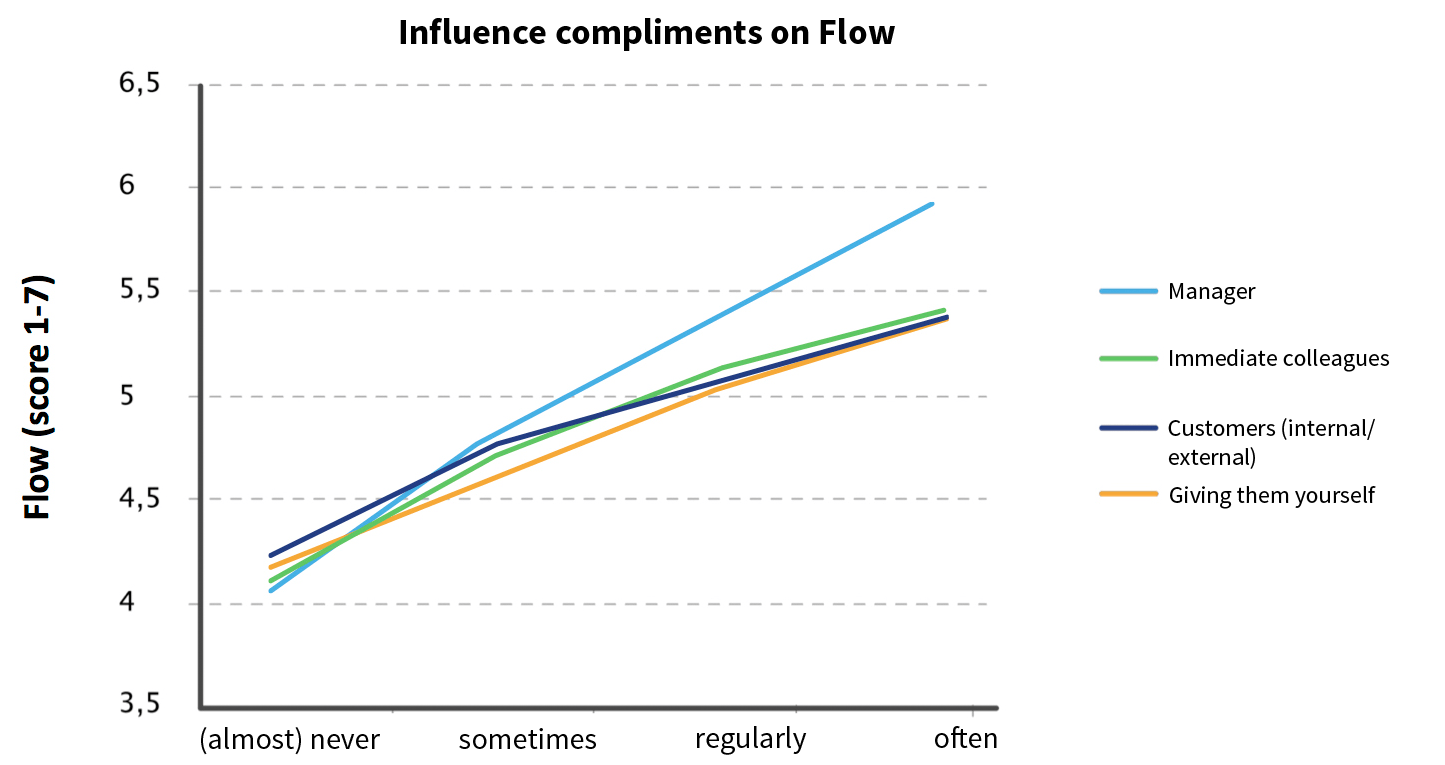March 1 is National Compliments Day. A good reason to wonder about the power of compliments. Because that power is staggering! The more compliments you receive, the better you feel. And… the better your results. But giving good compliments is not that easy. Neither is receiving them. Luckily both skills are simple to improve.
Why compliments matter that much? They help you to achieve flow, the optimal mental state, in which you can excel.

As shown in the graph above (from the presentation that Gaby Remmers of Blauw Research and I presented at Marketing Insights Event 2015 (MIE15)), not only is flow achieved through receiving a compliment. Also praising others helps you get into this mental state.
Giving and receiving, an art
It’s important to master the art of giving and receiving compliments. Giving compliments with the desired effect turns out to not be that easy. Often your thumbs up for the other person says more about you than about the one on the receiving end. People tend to mostly notice things they find important, and things they would like to be complimented on themselves. Often they don’t check if the compliment has as much meaning for the receiver. Even though compliments have their maximum value when awarded for something that required real effort. Something that turned out well after persistent creativity. How to know what those things are for the one you wish to compliment? How about you ask them?
Properly receiving compliments too is not as simple as it seems. How often do people dismiss well intended praise with something like: ‘Ah well, it’s nothing really.’ or: ‘It was on sale.’? As this video shows when you and the other person let a compliment sink and you are aware of its impact, the effect is remarkable.
Rooted in fear
Having trouble receiving compliments often comes from fear, says the psychologist, researcher and author of the book Self Compassion,stop beating yourself up and leave insecurity behind Kristin Neff. Fear of raising expectation and then disappointing others and yourself. Fear of muting your inner critic, that you grown accustomed to to the extend it has grown into an important part of your comfort zone. And fear of people (rightly so) calling you vain.
Do you want to raise your level of self-compassion? Read Are you friendly enough for yourself?
Hands on
Do you want to become better at dealing with compiments? Grow the habit of handing out at least three sincere compliments every day. That will not only brighten the receivers days, but yours as well. In the beginning it may be somewhat uncomfortable, but you will see yourself loosening up and that it brings you, your collegues and the other people around you lots of positive energy. You think reaching that number is hard? The more reason to make it a daily ritual. Just do it. You will find that when the good stuff happens, it becomes harder to leave it at just three (which of course is not a limit: the more the better).
Tips for good compliments:
More tips on how to better deal with compliments? Request our ebook Energy to Excelerate. This is temporarily available free of charge.







Leave A Comment